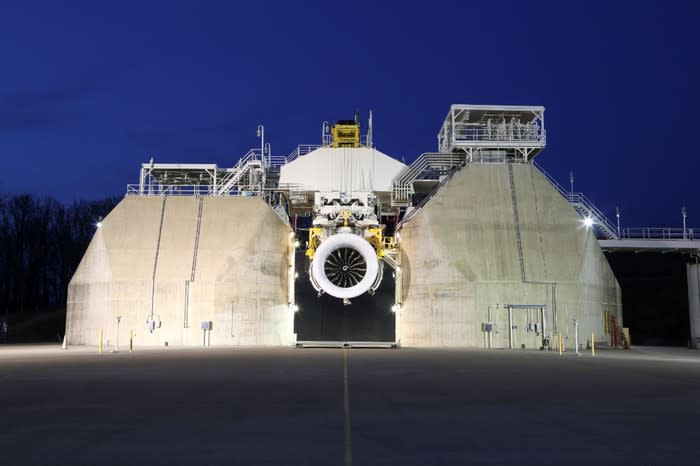GE Will Look Much Different a Year From Now
General Electric's (NYSE: GE) second-quarter earnings report showed clear signs that the long-suffering conglomerate is starting to stabilize its business under the leadership of new CEO Larry Culp. Adjusted earnings per share came in roughly flat year over year at $0.17, and GE raised its full-year outlook for revenue growth, adjusted EPS, and free cash flow.
Investors should have found this news comforting. However, GE stock has plunged more than 20% since the earnings report, over worries about the grounding of the Boeing (NYSE: BA) 737 MAX, escalating trade tensions between the U.S. and China, and -- most significantly -- a recent report alleging accounting fraud at GE.
General Electric stock performance data by YCharts.
There isn't much factual basis for these concerns. But for now, they at least seem plausible, since GE is in the midst of a major restructuring. By this time next year, it should be clear to all that General Electric is on the road back to health.
The balance sheet is skeptics' biggest concern
Bulls and bears alike recognize that GE has massive liabilities. As of June 30, the company reported borrowings of $105.8 billion, $32.7 billion of pension and other related liabilities, and $38.1 billion of annuity and insurance liabilities. The real question is whether General Electric has the resources to pay those liabilities now and in the future.
The big claim in a report released earlier this month by serial whistleblower Harry Markopolos and his associates was that GE needs to contribute $18.5 billion to its insurance reserves, above and beyond its current plans. Credit rating agency Fitch recently raised similar concerns, although the company, some Wall Street analysts, and the regulator that oversees GE's insurance operations all retorted that the critics have a poor understanding of GE's insurance unit.
However, this dispute wouldn't be very significant without the company's broader balance sheet issues. GE is still a very large company, and an $18.5 billion bill normally wouldn't be a life-or-death matter. After all, GE's aviation and healthcare segments posted a combined operating profit of more than $10 billion last year and are growing steadily.

GE's aviation and healthcare units generate tons of cash. Image source: General Electric.
Markopolos and his team clearly believe that GE's balance sheet is in even worse shape than it appears. (For example, they flagged the company's negative working capital as a major concern.) That's why they think the (alleged) new liabilities they discovered will tip GE into bankruptcy.
GE is set to pay down a lot of debt
In reality, GE's balance sheet is almost certain to look a lot better by this time next year. Earlier this month, the company sold most of its remaining stake in Wabtec for more than $1.4 billion. It has firm plans to sell an additional $8 billion of assets from its GE Capital subsidiary by the end of 2019. Most notably, GE is still on track to complete the sale of its biopharma unit to Danaher for $21 billion in cash later this year.
GE is also likely to continue selling down its 50.4% stake in Baker Hughes, a GE Company -- currently worth $11 billion -- over the next year. In addition to generating cash proceeds, this divestiture will remove Baker Hughes' $6.3 billion of long-term debt from GE's balance sheet.
Lastly, GE Capital will continue paying off maturing debt with excess cash through the end of 2020. The net result is that by this time next year, GE's debt will be tens of billions of dollars lower than it was at the end of the second quarter. That will make its balance sheet look far less scary to investors.
Business trends should improve over the next year
The other big concern for investors is that GE's earnings and cash flow have been under pressure. However, profitability is already starting to improve, particularly in the troubled power segment, as seen in the company's recent earnings report. Meanwhile, free cash flow is set to bottom out in 2019 -- because of high cash restructuring costs -- before rebounding rapidly in 2020 and 2021.
In recent months, the biggest risk to this outlook has been the possibility of further delays to the Boeing 737 MAX's return to service. GE's CFM joint venture builds the 737 MAX's LEAP 1-B engines, and right now it isn't getting paid for all of the engines on time because of the grounding. This situation is creating a temporary drag on cash flow.
The good news is that Boeing finally may be close to getting its top-selling plane back in the air. While it still needs to submit its final software fixes to the FAA and gain regulatory approval, Boeing has begun hiring temporary workers to prepare for a surge in deliveries starting this fall.
While Boeing may not get the 737 MAX back in service quite as quickly as it hopes, it's very likely that deliveries will resume by early 2020 at the latest. That will allow GE to get paid for the LEAP engines it has already built, contributing to its cash flow recovery next year.
In short, by this time next year, earnings and cash flow should be recovering, and GE will have a dramatically better balance sheet. That will make it a lot harder for bears to build a credible case against GE stock.
More From The Motley Fool
Adam Levine-Weinberg owns shares of General Electric and Westinghouse Air Brake Technologies. The Motley Fool owns shares of and recommends Westinghouse Air Brake Technologies. The Motley Fool has a disclosure policy.
This article was originally published on Fool.com

 Yahoo Finance
Yahoo Finance 